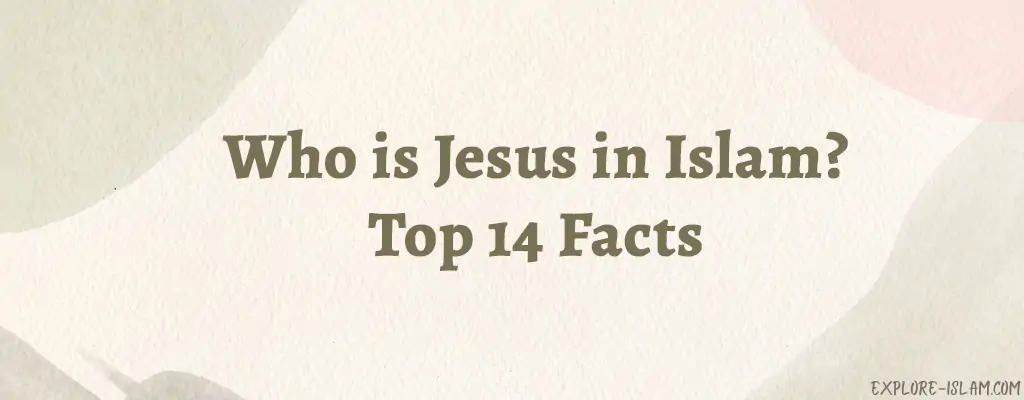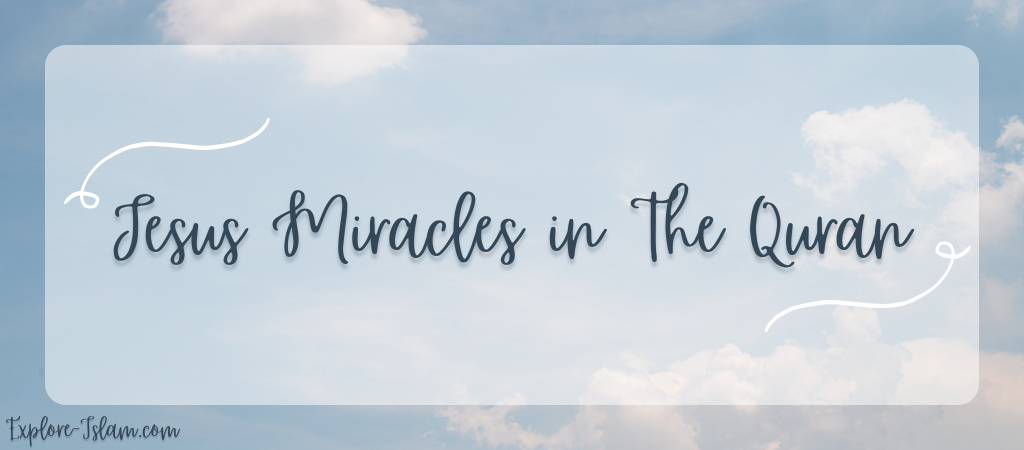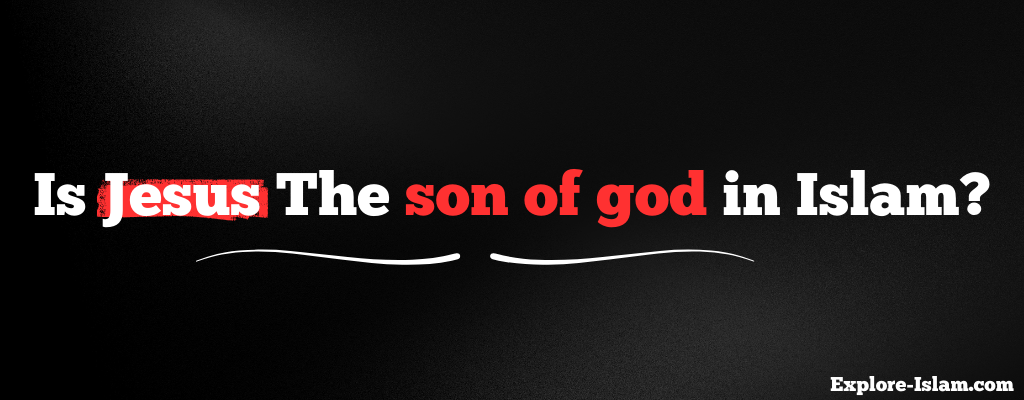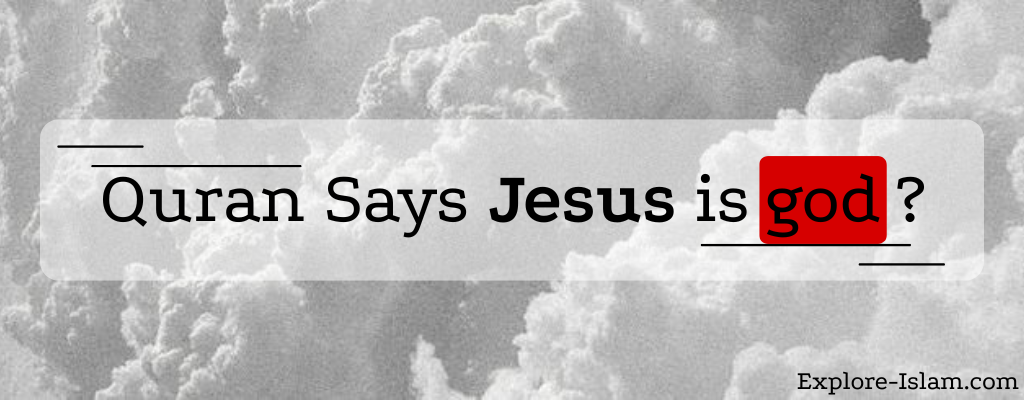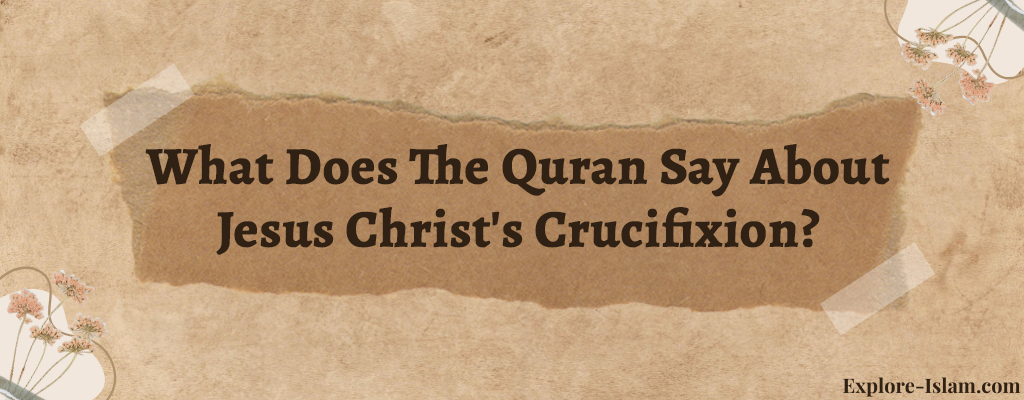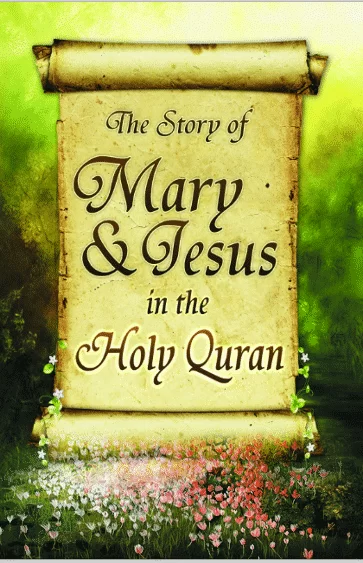In the Quran, no woman is mentioned as frequently and with as much reverence as the Virgin Mary. As a Muslim, Mary stands out to us as a symbol of piety, honor, and dignity, encapsulating profound virtues that the Quran vividly portrays. Her narrative exemplifies divine grace and serves as a source of inspiration for believers worldwide.
In this article, we delve into 10 honoring Verses About Mary in The Quran that highlight Mary’s pivotal role and exemplary qualities. From the miraculous birth of Jesus (Isa) to her steadfast faith and devotion to Almighty God, we uncover the profound teachings and lessons embedded in Mary’s story. Through these verses, Mary emerges not only as a revered figure in Islamic tradition but also as a timeless symbol of resilience, faith, and unwavering dedication to divine guidance. Join us as we explore the Quran’s portrayal of Mary and reflect on the enduring lessons her life offers to believers today.
First Verse: The Birth of Mary
The birth of Mary (Maryam) is a pivotal event in Islamic tradition, demonstrating divine favor and maternal dedication. The Quran highlights Allah’s selection of certain families for their righteousness, emphasizing the piety of Mary’s family. The narrative showcases the deep faith of Mary’s mother, the wife of ‘Imran, who pledges her unborn child to Allah’s service, reflecting her profound devotion.
“فَلَمَّا وَضَعَتْهَا قَالَتْ رَبِّ إِنِّى وَضَعْتُهَآ أُنثَىٰ وَٱللَّهُ أَعْلَمُ بِمَا وَضَعَتْ وَلَيْسَ ٱلذَّكَرُ كَٱلْأُنثَىٰ ۖ وَإِنِّى سَمَّيْتُهَا مَرْيَمَ”
[Mention, O Muhammad], when the wife of ‘Imran said, ‘My Lord, indeed I have pledged to You what is in my womb, consecrated [for Your service], so accept this from me… And I have named her Mary, and I seek refuge for her in You and [for] her descendants from Satan, the expelled [from the mercy of Allah].‘” Quran 3:35-36
This verse underscores Allah’s wisdom in accepting Mary and highlights the divine protection sought for Mary and her descendants. Her mother prayed so hard for the child’s righteousness and was so honest that she received the purest woman in the world. Also, the story exemplifies the virtues of faith, dedication, and divine selection, setting a profound example of piety and righteousness.
Read:
- Beautiful Quran Verses About Love And Marriage In Arabic and English
- 20 Most Heart-Touching Verses And Ayat of The Quran in English and Arabic
- What Is An-Nasikh and Al-Mansukh: 11 Questions on Quran Abrogation in Islam
Second Verse: The Childhood of Mary
Mary’s childhood, as described in the Quran, is a testament to her piety and the divine care she received. This narrative highlights the special provisions and care that surrounded Mary from a young age, signifying her unique status.
فَتَقَبَّلَهَا رَبُّهَا بِقَبُولٍ حَسَنٍۢ وَأَنۢبَتَهَا نَبَاتًا حَسَنًۭا وَكَفَّلَهَا زَكَرِيَّا
“So her Lord accepted her with good acceptance and caused her to grow in a good manner and put her in the care of Zechariah. Every time Zechariah entered upon her in the prayer chamber, he found with her provision…” Quran 3:37
Scholars interpret this acceptance by Allah as a sign that Mary was blessed in both this life and the hereafter. Some scholars also suggest that Mary experienced extraordinary growth, developing in one day what an infant would typically grow in a year.
Zechariah, her guardian, witnessed miraculous provisions in Mary’s prayer chamber, such as finding out-of-season fruits. When asked about these provisions, Mary attributed them to Allah’s blessings. This emphasizes the divine favor and blessings bestowed upon her.
Notice how the Quran speaks of Mary’s parents with exceptional purity and piety, a portrayal that is unparalleled in other scriptures. This narrative not only highlights Mary’s blessed childhood but also underscores her role as a significant figure in Islamic tradition.
Third Verse: Mary, the Devout
Mary’s devotion to Allah is profoundly highlighted in the Quran, showcasing her as a chosen and purified woman of exceptional piety. Almighty God says in the Quran:
يَـٰمَرْيَمُ إِنَّ ٱللَّهَ ٱصْطَفَىٰكِ وَطَهَّرَكِ وَٱصْطَفَىٰكِ عَلَىٰ نِسَآءِ ٱلْعَـٰلَمِينَ
And (mention) when the angels said, ‘O Mary, indeed God has chosen you, purified you, and chosen you above the women of the worlds.’ ‘O Mary, be devoutly obedient to your Lord and prostrate and bow down along those who bow down (in prayer).’” (Quran 3:42-43)
Thus, these verses emphasize Mary’s exceptional status and purity. The angels’ declaration signifies her unique selection and purification by Allah, elevating her above all other women. The command for her to be devoutly obedient and to engage in acts of worship such as prostration and bowing down underscores her profound dedication to divine service.
Read:
- Who Wrote the Quran?
- The Compilation And Standardization Of The Quran – Full Guide
- The Major Themes, Topics And Messages Of The Quran
Fourth Verse: Quran Talked about Mary as the Symbol of Worship
Mary is depicted in the Quran as a paragon of worship and devotion, setting an example for all believers through her sincere and dedicated worship of Almighty God:
وَٱذْكُرْ فِى ٱلْكِتَـٰبِ مَرْيَمَ إِذِ ٱنتَبَذَتْ مِنْ أَهْلِهَا مَكَانًۭا شَرْقِيًّۭا
And mention, [O Muhammad], in the Book [the story of] Mary, when she withdrew from her family to a place toward the east.” (Quran 19:16)
In this verse, Mary is described as seeking a place in the east. This act of seclusion underscores her commitment to spirituality and her role as a symbol of devotion. Her actions demonstrate the depth of her faith and piety. This narrative serves as an enduring example of the virtues of sincere worship and spiritual dedication in Islam.
Read:
- What does the Quran say about the Bible?
- Has The Quran Changed? – 8 Reasons Why the Original Quran is Still in Existence
- Contradictions In The Quran: All Are Discussed In Details
Fifth Verse: The Good News of a new-Born Child for Mary
In Islamic tradition, the story of Mary and the birth of Jesus (PBUH) holds a profound significance. The Quran narrates the moment when the angels brought Mary the good tidings of a child, saying:
يَـٰمَرْيَمُ إِنَّ ٱللَّهَ يُبَشِّرُكِ بِكَلِمَةٍۢ مِّنْهُ ٱسْمُهُ ٱلْمَسِيحُ عِيسَى ٱبْنُ مَرْيَمَ
‘O Mary, indeed Allah gives you good tidings of a word from Him, whose name will be the Messiah, Jesus, the son of Mary … Mary wondered, “My Lord! How can I have a child when no man has ever touched me?” An angel replied, “So will it be. Allah [Only One True God] creates what He wills. When He decrees a matter, He simply tells it, ‘Be!’ And it is!” (Quran 3:45-47)
Thus, Islam states that Mary is revered as a symbol of piety and purity. She is honored as a virgin, chosen by Allah for the miraculous birth of Jesus whose role was as a messenger to the Children of Israel. His miracles, including speaking from the cradle and performing various signs by God’s permission, attest to his prophethood and serve as reminders of Allah’s power and mercy. Indeed, this belief underscores the profound respect and admiration Muslims hold for Mary and Jesus.
Sixth Verse: How Mary Received the News of Her Pregnancy
The Quran recounts the poignant moment when the Virgin Mary, in solitude and devotion, received the miraculous news of her pregnancy. It describes how she withdrew from her family to a place towards the east, seeking seclusion behind a screen. Then, Allah sent His angel to her in the form of a well-proportioned man. Startled, Mary sought refuge in Allah, but the angel reassured her:
قَالَ إِنَّمَآ أَنَا۠ رَسُولُ رَبِّكِ لِأَهَبَ لَكِ غُلَـٰمًۭا زَكِيًّۭا
I am only the messenger of your Lord to give you [news of] a pure boy.” Mary said, “How can I have a boy while no man has touched me and I have not been unchaste?” He said, “Thus [it will be]; your Lord says, ‘It is easy for Me, and We will make him a sign to the people and a mercy from Us. And it is a matter [already] decreed.'” (Quran 19:16-21)
The story of Mary’s miraculous conception and the birth of Jesus (Isa), as told in the Quran, highlights her unwavering faith and submission to Allah’s will. Despite initial astonishment and the challenges she faced, Mary accepted her divine destiny with grace. This event serves as a profound testament to the power of Allah’s decree and His mercy towards humankind.
Seventh Verse: Almighty God was Near to Mary During her Childbirth Pains
The Quran recounts the moment when Mary (Maryam) experienced the pains of childbirth in solitude after conceiving Jesus (Isa). As she sought refuge under a palm tree, overwhelmed with the intensity of labor, she exclaimed
فَنَادَىٰهَا مِن تَحْتِهَآ أَلَّا تَحْزَنِى قَدْ جَعَلَ رَبُّكِ تَحْتَكِ سَرِيًّۭا
“Oh, I wish I had died before this and was in oblivion, forgotten.” So a voice reassured her from below her, “Do not grieve! Your Lord has provided a stream at your feet.. And shake toward you the trunk of the palm tree; it will drop upon you ripe, fresh dates.”(Quran 19: 22-24)
Here, the Almighty’s mercy and closeness to Mary during her time of distress are vividly portrayed. Despite her solitude, Allah provided sustenance and comfort, reassuring her through divine intervention. This event underscores the profound care Almighty God extends to His servants, even in moments of great challenge and isolation.
Read:
- Quran Mistakes: How Many Mistakes Are There In The Quran?
- Why Did (Caliph) Uthman Burn The Quran And Changed It? – 5 Solid Proofs
Eighth Verse: God Created a Special Miracle just to Disclaim People’s Accusation
The Quran depicts the extraordinary honor bestowed upon Mary (Maryam), the mother of Jesus (Isa), during a momentous event. After giving birth in seclusion and returning to her people, Mary carried her infant son. Astonished by this miraculous occurrence, the people questioned her integrity, but Mary, by a divine miracle, pointed to her newborn son, Jesus, who spoke from the cradle, declaring his status as a servant of Allah, blessed and entrusted with scripture and prophethood.
فَأَشَارَتْ إِلَيْهِ ۖ قَالُوا۟ كَيْفَ نُكَلِّمُ مَن كَانَ فِى ٱلْمَهْدِ صَبِيًّۭا
So she [Mary] pointed to him. They said, “How can we speak to one who is in the cradle a child?” [Jesus] said, “Indeed, I am the servant of Allah. He has given me the Scripture and made me a prophet. And He has made me blessed wherever I am and has enjoined upon me prayer and zakah as long as I remain alive” (Quran 19:29-33)
Thus, the Quran’s portrayal of Mary underscores her impeccable character and the divine validation of her purity. Through Jesus’ miraculous speech as an infant, Allah silenced accusations against Mary, affirming her righteousness and integrity. This narrative serves as a testament to Mary’s esteemed position in Islam, honored as a paragon of piety and devotion.
Ninth Verse: The Immaculate Conception of the Virgin Mary
The Quran highlights the immaculate conception of Mary (Maryam), emphasizing her exceptional purity and devotion to Allah. It narrates how Allah, through His angel Gabriel (Jibreel), guarded Mary’s chastity and blessed her with a miraculous conception, saying:
And [mention] the one who guarded her chastity, so We blew into her [garment] through Our angel [Gabriel], and We made her and her son a sign for the worlds.” (Quran 21:91)
In this profound verse, Mary’s chastity is safeguarded by Allah Himself, and her son, Jesus (Isa), is designated as a miraculous sign for all of humanity. This divine miracle underscores Mary’s exalted status in Islam and her pivotal role in conveying Allah’s message of purity and righteousness.
Read: 6 Common Scientific Errors In The Quran
Tenth Verse: The Excellence of Mary
The Quran illustrates the exemplary status of Mary (Maryam), the daughter of ‘Imran, highlighting her unwavering faith and steadfastness in guarding her chastity. Allah presents Mary as a paragon of virtue, stating:
وَصَدَّقَتْ بِكَلِمَـٰتِ رَبِّهَا وَكُتُبِهِۦ وَكَانَتْ مِنَ ٱلْقَـٰنِتِينَ
And [the example of] Mary, the daughter of ‘Imran, who guarded her chastity, so We breathed into her ˹womb˺ through Our angel ˹Gabriel˺. She testified to the words of her Lord and His Scriptures, and was one of the ˹sincerely˺ devout.” (Quran 66:11-12)
Thus, by safeguarding her chastity and believing wholeheartedly in Allah’s revelations, Mary earns a place of honor among believers. Her story serves as a timeless example of faith, obedience, and devotion to Allah’s commandments.
Conclusion
Throughout the Quran, Mary (Maryam) is revered as a symbol of purity, faith, and divine favor. From the miraculous conception of Jesus to her steadfast devotion and exemplary character, Mary’s story resonates as a testament to Allah’s grace and the profound respect Islam holds for her. The Quranic verses highlight Mary’s exceptional status as a chosen servant of Allah, emphasizing her pivotal role in conveying messages of purity and righteousness to humanity. Have you come to see a book that honored the Virgin Mary as the Qur’an did?! For more about the position of Mary and Jesus in the Quran, start a conversation with our team now!
Reference:
– Story of Mary and Jesus in Qur’an
This article is available in the following languages:



